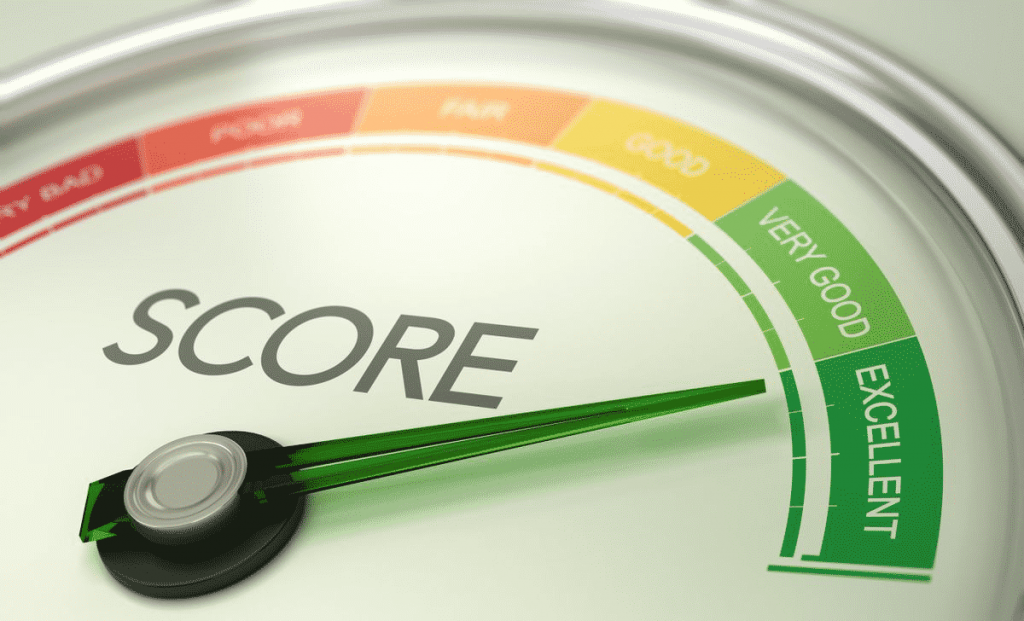Having a low credit score may be challenging, and in the past may have meant that homeownership was off the table. Fortunately, this is no longer true. There are loans available for people with low or bad credit, and we’ll tell you all about it.
What is a credit score?
Your credit score is based on your debt-management history. It’s a summary of how you have handled your credit and paid your bills. The higher the score, the better.
The specific things that factor into your FICO score:
- Your payment history: If you have delinquent accounts or late and missed payments, these can harm your credit score. This is a significant factor in your credit score, accounting for 35% of it.
- Public information: If you have bankruptcies or public records show up on your credit report, they will negatively impact your score.
- Length of credit history: If you’ve only just begun your credit journey, you may have a low credit score.
- Applications: If you apply for a loan or credit card, this is considered a hard inquiry. When a lender attempts to learn your credit score and possibly your credit report, this triggers a hard inquiry, which will negatively impact your credit score. Thankfully, the effect is only short-term. Periodically checking your own credit is only a soft inquiry and has no impact on your credit score.
- Your credit usage rate: This is the amount of available credit you are using. You figure this out by totaling the balances from your credit cards, then divide that number by your total credit limit. For instance, if you owe $4,000 on your credit cards and your total credit limit is $10,000, you are using 40% of your credit. The golden rule is to keep your usage under 30% of your available credit.
- Your total debt and credit: This concerns the total amount of outstanding debt and the kinds of credit you use. It’s good to have various types of credit – revolving credit (credit cards) and installment loans (car notes or loans with fixed payments).
Know your credit score and check your report before you apply for a home loan. If you find things there that can be fixed or are inaccurate, you may be able to improve your score.
Related: How to Refinance a Mortgage with Bad Credit
Why it matters
Credit scores typically range from 300 to 850, with the best credit at the higher end of the spectrum. While those looking to purchase homes don’t need to have a perfect score of 850, they also shouldn’t be at the low end. The best interest rates and deals are offered to those with scores of 760 or above.
But if you have a credit score of at least 580, there are options for you.
FHA Loans
To qualify for an FHA home loan, potential homeowners must have a minimum FICO score of 580. This score also entitles borrowers to the low down payment benefit of only 3.5%. If your score is below 580, you aren’t out of luck. You may still qualify for an FHA loan but have to pay a slightly higher down payment of 10%.
We help our clients to get low rates and the best mortgage deals possible. Are you looking for a mortgage broker? Call Mares Mortgage today!
Benefits of an FHA loan
The FHA’s home loans are insured by them so that lenders can be more relaxed in their requirements.
FHA home loans have many benefits for borrowers, including the following:
- FHA home loans have more competitive interest rates. These are intended to help borrowers afford their mortgage payments and prevent foreclosures.
- It’s easier to qualify for these loans, as they’re made available to people who can’t meet traditional loan requirements.
- Bankruptcies and foreclosures don’t disqualify you from obtaining an FHA loan. As long as you’re able to meet other FHA requirements, you can still qualify.
- The benefit of lower interest rates extends to lower mortgage insurance premiums, closing costs, and other fees.
- If you have a brief credit history, you may qualify through another form.
FHA loans make it possible for people to own homes without being burdened by them.

Related: Recast a Mortgage: A Complete Guide
VA Loans
Home loans provided by the U.S. Department of Veteran Affairs are for service members, military-affiliated people, and eligible spouses. VA loans don’t require any down payment or mortgage insurance, and they often give the lowest interest rates on the market.
The VA doesn’t impose any minimum credit score, but typically lenders require a minimum of 580.
And like the FHA home loan, VA loans don’t have risk-based pricing adjustments. This means that borrowers with lower scores can still get the great deals offered to those with higher credit scores.
Non-Qualified Mortgage
The final kind of mortgage available to those with low credit scores is the non-qualified mortgage. The qualified mortgage rule, also called the QM Rule, was established in 2014. The federal government set out the requirements for the loans, which were designed to protect home-buyers from high-risk mortgage products.
The QM rule is why many banks require higher minimum credit scores of at least 600, mortgage insurance, and down payments. But non-QM loans are available with more flexible rules to accommodate people with credit scores as low as 500. Like the FHA loan, non-QM loans are more readily available to people with a score of at least 580.
Related: What Is A Purchase Money Loan?
Final thought
If your FICO score is at least 580, you should meet with a reputable mortgage broker who can assist you in finding a loan.
Do you still have questions? Despite your credit score, we can help you find a suitable mortgage and reach your financial goals. Contact Mares Mortgage today!

